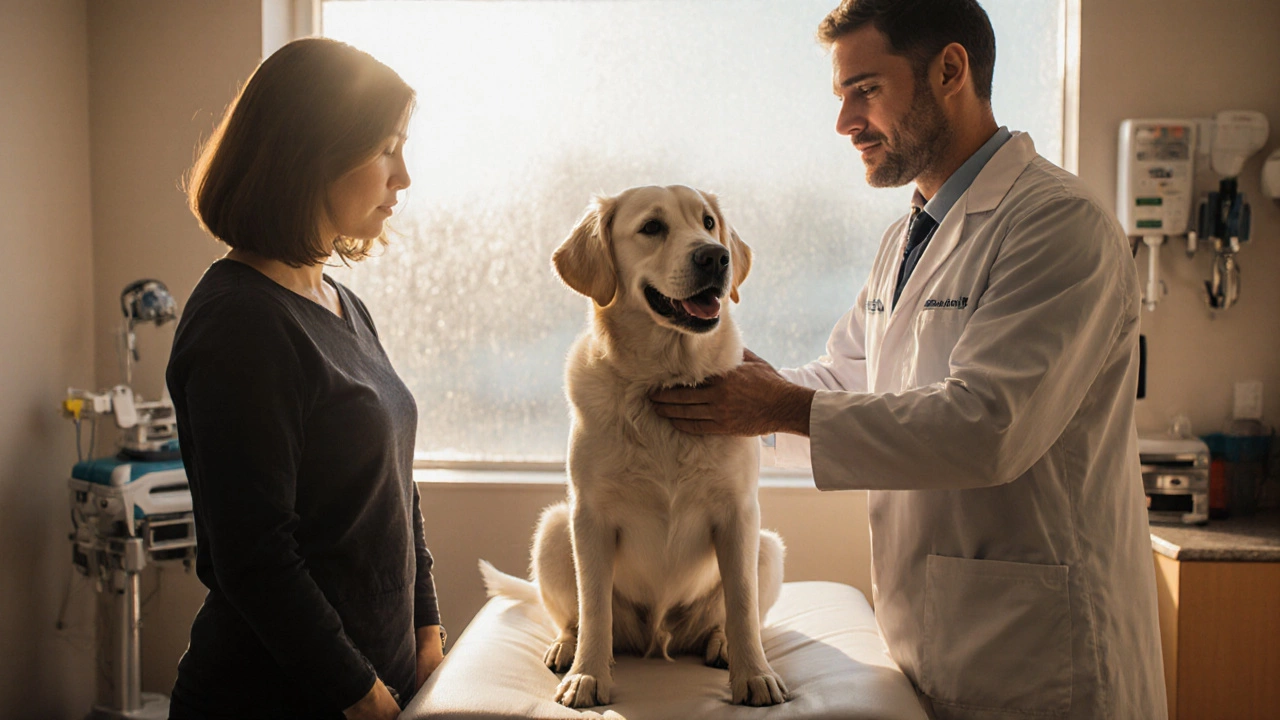Pet Vaccine Adverse Reactions: What Every Owner Should Know
If you're worried about pet vaccine adverse reactions, you’re not alone. When working with pet vaccine adverse reactions, the unexpected health issues that can appear after a pet receives a vaccine, ranging from mild swelling to severe allergic responses. Also called vaccine side effects, they signal why careful monitoring and quick veterinary care are crucial.
These reactions tie directly to vaccines, preventive injections that protect dogs, cats and other pets from contagious diseases. A well‑planned immunization schedule, the timing and sequence of shots recommended by vets reduces disease risk, but it also means owners must understand when a reaction is normal and when it’s a warning sign. For example, a low‑grade fever or short‑lived soreness is typical, while sudden vomiting, hives or trouble breathing calls for immediate help. Knowing the difference lets you stay calm and act fast.
Key Factors to Watch
One of the most common triggers of serious reactions is an allergic reaction, an immune system over‑response that can cause swelling, itching, or anaphylaxis after vaccination. Certain breeds, older pets, or animals with a history of drug sensitivities are more prone. Genetics play a role, but so do external factors like stress or concurrent illnesses. By recognizing early signs—such as facial edema, rapid pulse or drooling—you can give your vet the information they need to decide on treatment, which might include antihistamines, steroids or supportive care.
Whenever a reaction shows up, veterinary care, professional medical attention from a licensed vet or animal hospital becomes the next step. Vets can run diagnostic tests, assess severity, and prescribe the right medication. They may also suggest alternative vaccine formulations or adjusted dosing for future shots. Prompt action not only eases your pet’s discomfort but also prevents complications that could become life‑threatening.
Prevention is just as important as treatment. Many clinics now offer pre‑vaccination screening, like blood work or allergy testing, to spot hidden sensitivities. Post‑vaccination observation—usually 15‑30 minutes on‑site—lets staff catch early signs before you head home. At home, keep a simple log: note the vaccine name, date, and any changes in behavior, appetite or skin. This record helps your vet fine‑tune future plans and gives you confidence that you’re doing everything possible to keep your pet healthy. By understanding how pet vaccine adverse reactions fit into the broader picture of pet health, you’ll be better equipped to make informed choices, spot problems early, and work closely with your veterinarian. Below you’ll find a curated set of articles that dive deeper into related topics—from calming anxious pets during vet visits to choosing the right supplement after a reaction—so you can stay ahead of the curve and keep your furry friend thriving.
Dog Vaccination Risks: Key Cons Every Owner Should Know
Explore the downsides of dog vaccination, from mild side effects to rare severe reactions, and learn how to protect your pet while minimizing risks.






